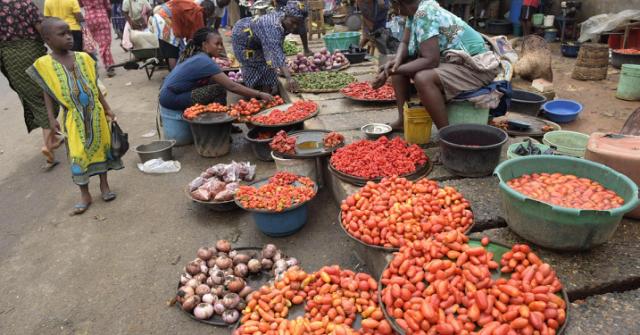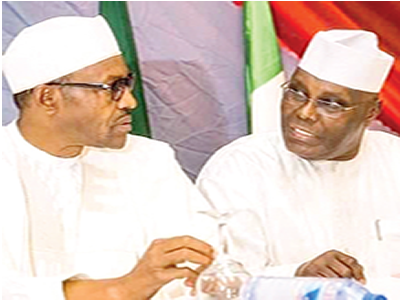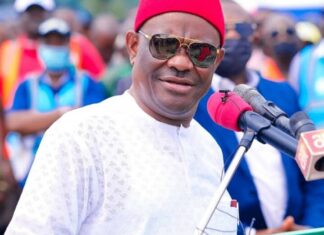By Jeph Ajobaju, Chief Copy Editor
A double whammy of high inflation and dull market assets is on Nigeria’s plate, four weeks out from the presidential vote, even as similar markets elsewhere rally.
Annual inflation clicked 11.44 per cent in December 2018, according to the latest figure released on Wednesday by the National Bureau of Statistics (NBS).
This is a seventh-month high, up from 11.28 per cent in November.
Consequences of inflation
In naira and kobo, inflation translates as higher prices of goods and services, hitting the poor especially hard in paying for food items and transportation with static incomes.
Companies are not hiring, and people with jobs hardly get by with low pay. The Nigeria Labour Congress (NLC) has been battling unsuccessfully with Abuja for months to raise the minimum wage to N30,000.
Despite the possibility of Labour calling a strike to scuttle Muhammadu Buhari’s reelection if he fails to deliver on the minimum wage, Abuja has shifted the burden on Governors while Buhari is unmoved.
The crux of the matter, anyway, is that the economy is based majorly on oil, and whoever runs Nigeria also runs the risk of empty social promises until the economy fans out to earn foreign exchange from diverse sectors.
Buhari’s performance versus Atiku’s promises
Atiku Abubakar, 72, Presidential candidate of the Peoples Democratic Party (PDP), has promised to diversify the economy and create jobs if elected on February 16.
He is trying take over from Muhammadu Buhari, 76 – who, in his electioneering in 2015, also made similar promises and end corruption, Nigeria’s disease.
Four years on, the country is worse off than Buhari met it.
In his pitch in Lagos on January 16, Atiku promised to sell the Nigerian National Petroleum Corporation (NNPC), which he called a “mafia organisation,” and attract private investors to drive economic growth and create jobs.
“I will liberalise the economy to create jobs …. I will reduce the size of the federal government completely and hand over the responsibilities.”
How Atiku will achieve economic diversification if elected remains to be seen.
High lending rate hampers production
Reuters reports that inflation in Nigeria has been rising steadily since July 2018, increasing chances that the Central Bank of Nigeria (CBN) could tighten interest rates at its first meeting of 2019 next week.
The price index, which peaked at 18.7 per cent in January last year, has been in double digits for three years.
CBN Governor, Godwin Emefiele, said in November 2018 that he expected the tight monetary policy stance to continue in 2019, due to the inflation and exchange rate outlooks.
He reiterated that the short-term outlook for the economy was good and that the country was open for foreign investors.
The CBN has kept benchmark rates tight at 14 per cent for more than a year to curb inflation, support the naira and attract foreign investors into the debt market.
But the high interest on bank loans makes it costlier to do business or produce goods and services.
As a consequence, food prices, which make up the bulk of the inflation basket, rose to 13.56 per cent in December 2018, up from 13.30 per cent a month earlier.
Nigeria emerged from its first recession in 25 years in 2017 but growth remains fragile, although higher oil prices and recent debt sales have helped Africa’s biggest crude producer to accrue billions of dollars in foreign reserves, according to Reuters.
NSE eyes pick up in Q3
Bloomberg also reports that while emerging-market assets are enjoying a strong start to the year, Nigeria is missing out on the rally.
With investors fretting about tight elections just four weeks away, low oil prices and escalating violence, there is little to suggest there will be an immediate turnaround.
However, analysts, including those at Standard Bank and CSL Research based in Lagos say the stock market will rally after the election, regardless of who wins.
“We expect a recovery in the market in the second half of the year as the new administration assumes responsibility of steering the economy,” CSL analysts, including Gloria Fadipe, said in a note on January 14.
Nigerian Stock Exchange (NSE) Chief Executive Officer, Oscar Onyema, said in Lagos on January 14 that the first half of 2019 would probably be volatile.
He enthused, however, that activity could pick up in the second half of the year on government spending and a boost in consumer demand if the 2019 budget is approved and implemented early.
The main stock index in Lagos, the commercial capital, has lost 4.1 per cent since the end of 2018, which is the biggest drop globally after Serbia, Romania and Bulgaria, according to data compiled by Bloomberg.
Bonds return half value
Nigeria’s local bonds have returned 0.7 per cent in dollar terms, half the average of emerging-market gain of 1.4 per cent.
“We expect the trend in the market to be bearish before the elections,” Dele Akintola, an equity analyst at Standard Bank Group’s Nigerian unit, said in a note last week.
“The selling we have seen has been pretty broad-based but it isn’t a panic, more of a slow puncture.”
Blue-chip names have not been spared. The biggest listed company, Dangote Cement Plc, has dropped 5.1 per cent this year. Nigerian Breweries Plc, controlled by Heineken NV, is down 8.8 per cent.
Africa’s most populous country and biggest oil producer has also been hit by Brent crude’s 30 per cent fall since October to around $60 a barrel.
That has crimped foreign exchange earnings and put the naira under pressure.
CSL said given “high potential upside in stock prices, we believe it makes sense for dollar-based investors to take positions on a one-year view now.
“Albeit, we recognise considerable investor fatigue with Nigeria that could delay a rally.”
The benchmark index, which dropped to a bearish territory since August 2018, climbed 0.3 per cent on January 15, 2019, rising for a fourth day.















